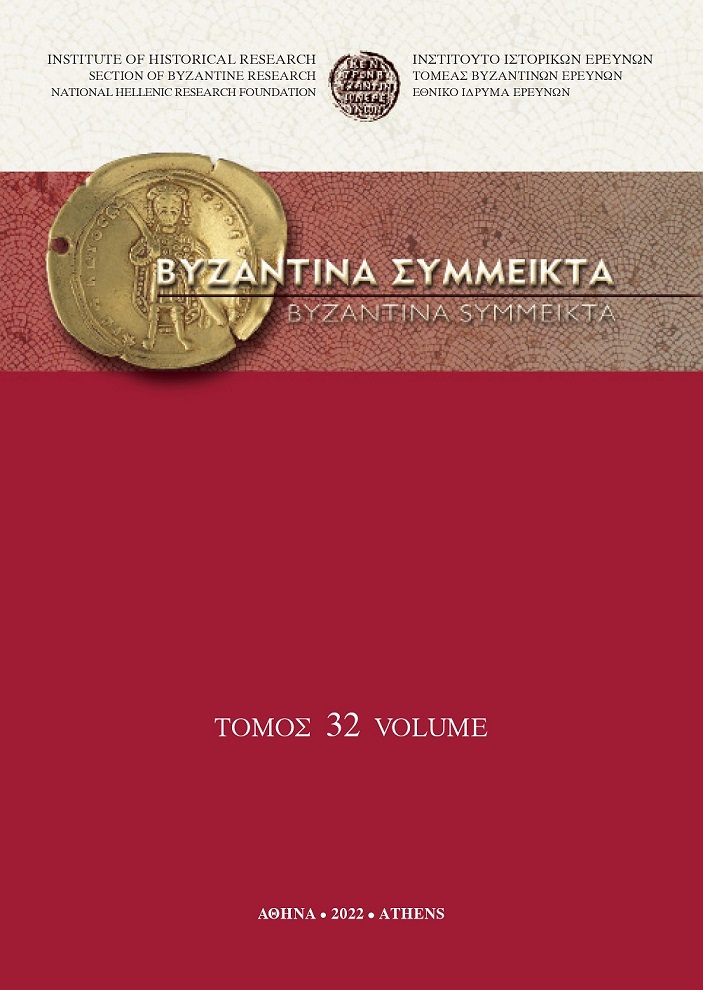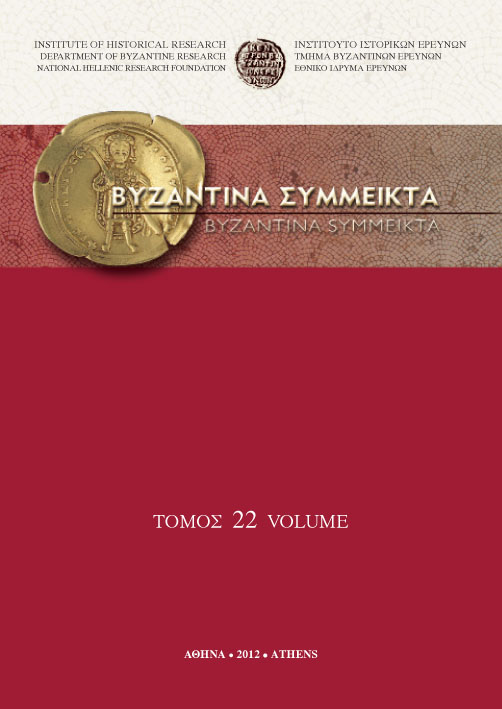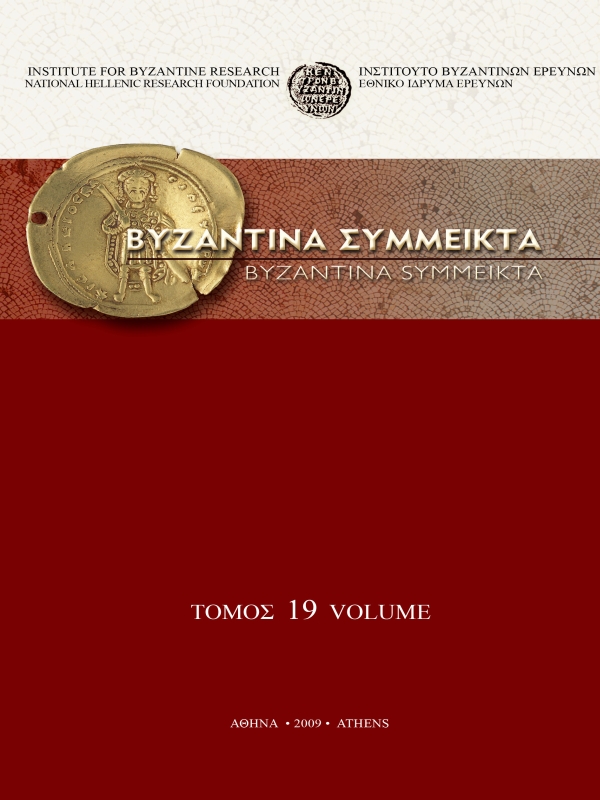Ο πόλεμος φθοράς και η τακτική της εξαπάτησης και του αιφνιδιασμού στις πολεμικές επιχειρήσεις του Βυζαντίου (11ος -13ος αιώνας)

Περίληψη
Theory (as attested by the military manuals) and practice prove that attrition warfare and the associated military tactics of deception and surprise played an important role in the byzantine military history. The paper studies cases of attrition warfare and surprise attacks exercised by the Byzantines from 11th till 13th century. Important military leaders such as Alexios I Komnenos were masters of attrition warfare and used skillfully that strategy whenever an open battle against a strong opponent was very precarious.
The Byzantines took advantage of the Balkan and Asia Minor mountainous terrain as well as the recruitment of foreign fast moving troops armed with long range shooting weapons that facilitated the exercise of tactics of deception and surprise. These military tactics were mostly successful against the Latins while were occasionally successful against the Seljuks and the Turkomans. The paper concludes that attrition warfare and the tactics of deception and surprise were more often applied during the 13th century –a period that Byzantium’s military resources and capabilities diminished– thus being a distinctive byzantine method of warfare and gave rise to an active role of the infantry who under special circumstances could threaten the western cavalry.
Λεπτομέρειες άρθρου
- Πώς να δημιουργήσετε Αναφορές
-
ΚΑΝΕΛΛΟΠΟΥΛΟΣ Ν. Σ. (2022). Ο πόλεμος φθοράς και η τακτική της εξαπάτησης και του αιφνιδιασμού στις πολεμικές επιχειρήσεις του Βυζαντίου (11ος -13ος αιώνας). Βυζαντινά Σύμμεικτα, 32, 83–102. https://doi.org/10.12681/byzsym.27147
- Τεύχος
- ΒΥΖΑΝΤΙΝΑ ΣΥΜΜΕΙΚΤΑ 32
- Ενότητα
- Άρθρα

Αυτή η εργασία είναι αδειοδοτημένη υπό το CC Αναφορά Δημιουργού – Μη Εμπορική Χρήση – Παρόμοια Διανομή 4.0.
Οι συγγραφείς των άρθρων που δημοσιεύονται στα ΒΥΖΑΝΤΙΝΑ ΣΥΜΜΕΙΚΤΑ διατηρούν τα δικαιώματα πνευματικής ιδιοκτησίας επί των άρθρων τους, δίνοντας στο περιοδικό το δικαίωμα της πρώτης δημοσίευσης. Άρθρα που δημοσιεύονται στα ΒΥΖΑΝΤΙΝΑ ΣΥΜΜΕΙΚΤΑ μπορούν να χρησιμοποιούνται ελεύθερα, χωρίς δικαίωμα τροποποίησης (δημιουργία παράγωγου έργου) με αναφορά στο συγγραφέα και στην πρώτη δημοσίευση για μη κερδοσκοπικούς σκοπούς(άδεια Creative Commons 4.0). To Εθνικό Ίδρυμα Ερευνών διατηρεί το δικαίωμα να δημοσιεύει, να αναπαραγάγει, να παρουσιάζει στο κοινό, να διανέμει και χρησιμοποιεί άρθρα που δημοσιεύονται στα ΒΥΖΑΝΤΙΝΑ ΣΥΜΜΕΙΚΤΑ σε οποιοδήποτε μέσο και μορφή είτε μεμονωμένα είτε ως μέρη συλλογικών έργων, για όλο το χρόνο διάρκειας προστασίας της πνευματικής ιδιοκτησίας και για όλες τις χώρες του κόσμου. Αυτό περιλαμβάνει ενδεικτικά και όχι αποκλειστικά, το δικαίωμα δημοσίευσης των άρθρων σε τεύχη του περιοδικού ΒΥΖΑΝΤΙΝΑ ΣΥΜΜΕΙΚΤΑ, αναπαραγωγής και διανομής μεμονωμένων αντιγράφων των άρθρων, αναπαραγωγής ολόκληρων των άρθρων σε άλλη έκδοση του ΕΙΕ, και αναπαραγωγής και διανομής των άρθρων ή περίληψης αυτών με χρήση πληροφορικού συστήματος αποθετηρίου.




